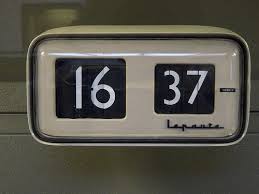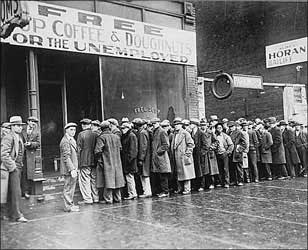Best of 2015: What HR will be talking about most in 2015, (and what we need to stop talking about)
My completely unscientific, biased, personal, and guaranteed to be 100% accurate take on what HR, work, and workplace technology topics we will be spending endless cycles dissecting and analyzing in 2015, followed by a short list of topics that we have, have, have to stop it already with lamenting.
These 'hot' topics were complied from a scientific review of all the stuff I saved, tweeted, bookmarked, or emailed to myself over the holiday break, because since I read everything, that is the only research that is really needed. Also, and as an aside, I still email myself stuff all the time and every time I do that I feel like a noob. Oh well, here goes... Mark Rothko, Rust and Blue, 1953
Mark Rothko, Rust and Blue, 1953
What HR will be talking about most in 2015:
Predictive Analytics - Amazingly in three short years we have moved from talking about Big Data, to talking about analytics, and in 2015 we have arrived at even better analytics - the 'predictive' kinds. This is despite having (mostly) not all that much to show for all the focus on Big Data and regular analytics. But in 2015, expect to see HR tech companies espouse the power of their solutions ability to use data to 'predict' which employees will quit, which ones will perform well, which ones most likely to steal your Chobani from the break room fridge.
Retention - 2015 is going a be a fantastic year for some folks in the talent game as churn (and therefore recruiting) activity ramps up even more. More organizations are growing than are shrinking, more talented employees are ready to move, the 'quit' rate is climbing, and the best, most in-demand talent is completely in charge. Keeping your best, most difficult to replace people happy is going to be job #1 for HR in 2015.
Branding/Marketing/Attraction - In other words the hard job of 'selling' the company and its opportunities to talent that has the power. In 2015 this conversation is going to have to start expanding beyond just the external candidate facing aspect, and become much more of a complete, strategic priority. Marketers always remind us that it is much less expensive to keep, renew, and occasionally upsell existing customers than it is to try and find brand new customers. The same type of logic I think applies to people in the organization as well. It is easier, cheaper, and probably a better long-term play to keep working, investing, developing, and yes marketing to the existing employees than to always be on the hunt for external talent.
What HR needs to stop talking about in 2015:
'Social' HR - If you are someone, in 2015, who is still trying to get more HR folks engaged on social media I beg you to let that go. Twitter has been a thing, and a popular, well-known thing, for YEARS. If someone has not been able on their own to figure out if there is some value there for them by now THEY NEVER WILL. Lots of folks, possibly even me too, had some fun, got to travel to events, and got to pretend we were somehow cool or smart because we had a bunch of followers. That was fun. In 2010. In 2015 it is kind of sad. Please let this one go.
Candidate Experience - I think treating candidates respectfully, professionally, and communicating the status of any of their applications in a timely manner is important, and basic. Everyone should do this. I think spending any more time on 'experience' beyond ensuring those elements are in place is likely a less than optimal use of any organization's time and resources. If you have ALL your other internal talent management challenges in order, then sure, focus more effort on candidate experience. Then again, if you did have all of your other talent management challenges in order it is pretty likely you provide a perfectly satisfactory candidate experience as well.
Employee Engagement - Only 30% of employees are 'engaged'. That has become an immutable truth of work and workplaces. It is right alongside 'Average annual salary increases will be 3% this year' as the most expected headline of the year in HR. And so maybe it is time to just accept it. Lots of people are not 'engaged' and probably will never be no matter what. Quit worrying about it. Worry about if they show up, they get their jobs done, they don't leak the company intranet to the North Koreans, and they don't microwave leftover fish in the lunch room. We (collectively) have spent ages of time, effort, and energy trying to 'fix' engagement and we have (so far) failed. Maybe it's time to take a year off.
Ok, I am out. What say you? Am I close on this? Off the mark?
Have a great week and a fantastic 2015!

 Steve
Steve

